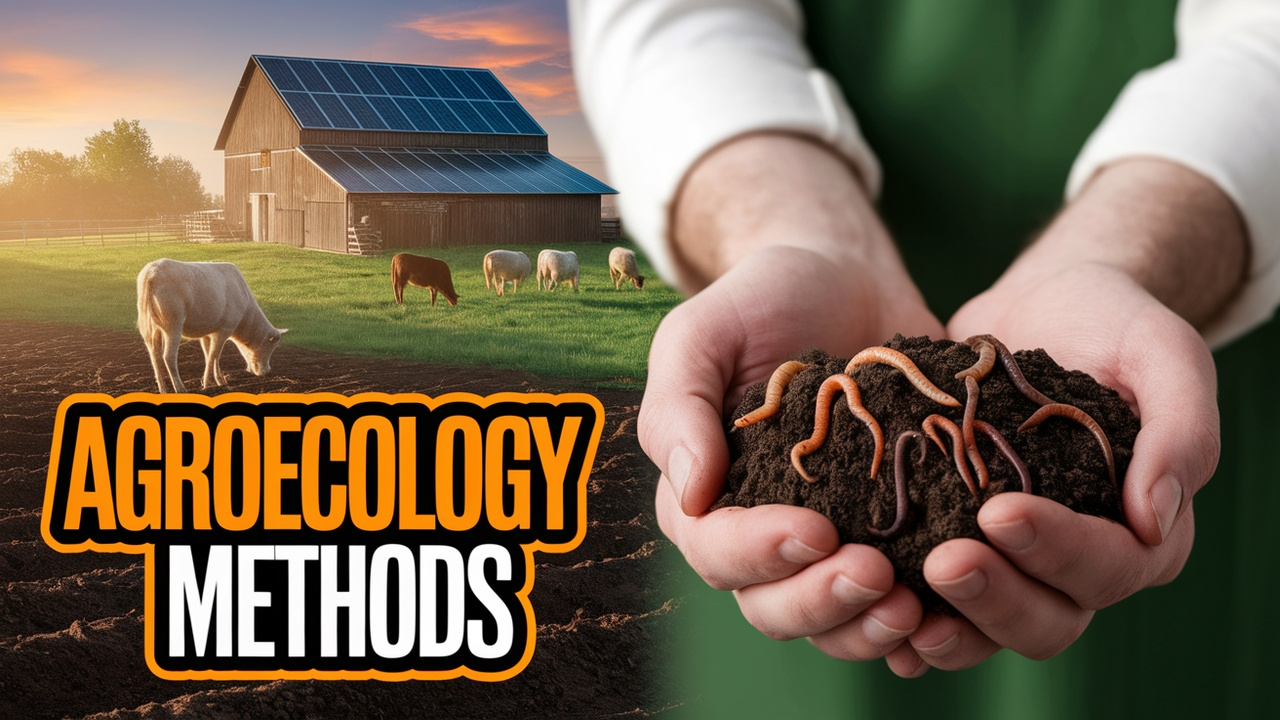
This course provides an in-depth look at agroecology and ecological farming methods, emphasizing sustainable agricultural practices that harmonize with the environment. Participants will explore the principles of agroecology, various farming techniques, and the socio-economic impacts of ecological farming.
Course Levels
-
Level 1: Introduction to Agroecology
This level introduces the foundational concepts of agroecology and its significance in sustainable agriculture.
-
Level 2: Soil Health and Management
Explore the critical role of soil health in agroecology and learn various management practices.
-
Level 3: Biodiversity in Agroecosystems
Understand the importance of biodiversity in farming systems and how it contributes to ecological resilience.
-
Level 4: Ecological Pest and Disease Management
This level focuses on sustainable methods for managing pests and diseases in agroecological systems.
-
Level 5: Water Management in Agroecology
Learn about the critical role of water management in sustainable agriculture and agroecological practices.
-
Level 6: Agroecological Practices and Techniques
Explore various ecological farming methods and practices that promote sustainability.
-
Level 7: Social and Economic Aspects of Agroecology
Examine the socio-economic implications of adopting agroecological practices in farming communities.
-
Level 8: Case Studies and Practical Applications
Analyze real-world case studies of successful agroecological practices and their outcomes.
-
Level 9: Future of Agroecology
Discuss the future trends and challenges facing agroecology and ecological farming.
Course Topics
-
Permaculture Principles and Design
# Permaculture Principles and Design Permaculture is a holistic approach to designing sustainable agricultural systems that mimic the natural ecosystems around us. This concept not only focuses on fo...
-
Integrated Pest Management (IPM)
# Integrated Pest Management (IPM) Integrated Pest Management (IPM) is a sustainable approach to managing pests that integrates multiple strategies and practices for effective control while minimizin...
-
Benefits of Ecological Farming
# Benefits of Ecological Farming Ecological farming, also known as agroecology, is a holistic approach to farming that considers the interactions between plants, animals, people, and the environment....
-
Cover Crops and Green Manures
# Cover Crops and Green Manures Cover crops and green manures are vital components of agroecological practices that enhance soil health, prevent erosion, and improve biodiversity in farming systems. ...
-
Role of Biodiversity in Pest Management
# Role of Biodiversity in Pest Management Biodiversity refers to the variety of life forms on Earth, encompassing species diversity, ecosystem diversity, and genetic diversity. In agroecosystems, bio...
-
Irrigation Techniques for Sustainability
# Irrigation Techniques for Sustainability Irrigation is a critical component of agricultural practices, especially in regions where rainfall is insufficient. Sustainable irrigation techniques aim to...
-
Biological Control Methods
# Biological Control Methods Biological control methods are an integral part of ecological pest and disease management, leveraging natural predators, parasites, and pathogens to manage pest populatio...
-
Understanding Pest Ecology
# Understanding Pest Ecology Pest ecology is a crucial aspect of ecological pest and disease management in agroecology. It focuses on the interactions between pests and their environment, including t...
-
Crop Rotation and Polyculture Practices
# Crop Rotation and Polyculture Practices ## Introduction Crop rotation and polyculture are pivotal practices in agroecology that enhance biodiversity in agroecosystems. These methods not only improv...
-
Organic Matter and Composting
# Organic Matter and Composting Organic matter is a crucial component of healthy soil. It consists of decomposed plant and animal material, which contributes to soil fertility, structure, and microbi...
-
Integrating Livestock into Crop Systems
# Integrating Livestock into Crop Systems ## Introduction Integrating livestock into crop systems is a fundamental principle of agroecology that enhances biodiversity, improves soil health, and optim...
-
Conservation of Heirloom Varieties
# Conservation of Heirloom Varieties ## Introduction Heirloom varieties are traditional plants that have been cultivated for generations, often passed down through families or communities. These vari...
-
Technological Innovations in Agroecology
# Technological Innovations in Agroecology Agroecology is an approach that integrates ecological principles into agricultural practices to create sustainable farming systems. In the 21st century, tec...
-
Building Local Food Systems
# Building Local Food Systems Local food systems are essential for promoting sustainable agriculture and supporting local economies. This topic explores the social and economic aspects of local food ...
-
Agroforestry Systems
# Agroforestry Systems Agroforestry is a land management system that combines agricultural and forestry practices to create ecological and economic benefits. This practice integrates trees and shrubs...
-
Assessing Soil Health
# Assessing Soil Health Soil health is a critical aspect of sustainable agriculture and agroecology. Understanding how to assess soil health allows farmers and land managers to make informed decision...
-
Disease Resistance in Crops
# Disease Resistance in Crops ## Introduction Disease resistance in crops is a critical component of sustainable agricultural practices. It involves the ability of a plant to prevent or mitigate the ...
-
Community Initiatives and Collaborations
# Community Initiatives and Collaborations ## Introduction Community initiatives and collaborations are essential components in the realm of agroecology, as they foster sustainable farming practices,...
-
Soil Composition and Structure
# Soil Composition and Structure Understanding soil composition and structure is crucial for effective soil health management in agroecology. This topic delves into the components of soil, their role...
-
Rainwater Harvesting Practices
# Rainwater Harvesting Practices Rainwater harvesting (RWH) is a sustainable practice that captures, diverts, and stores rainwater for various uses, particularly in agriculture. This method is integr...
- And 25 more topics...